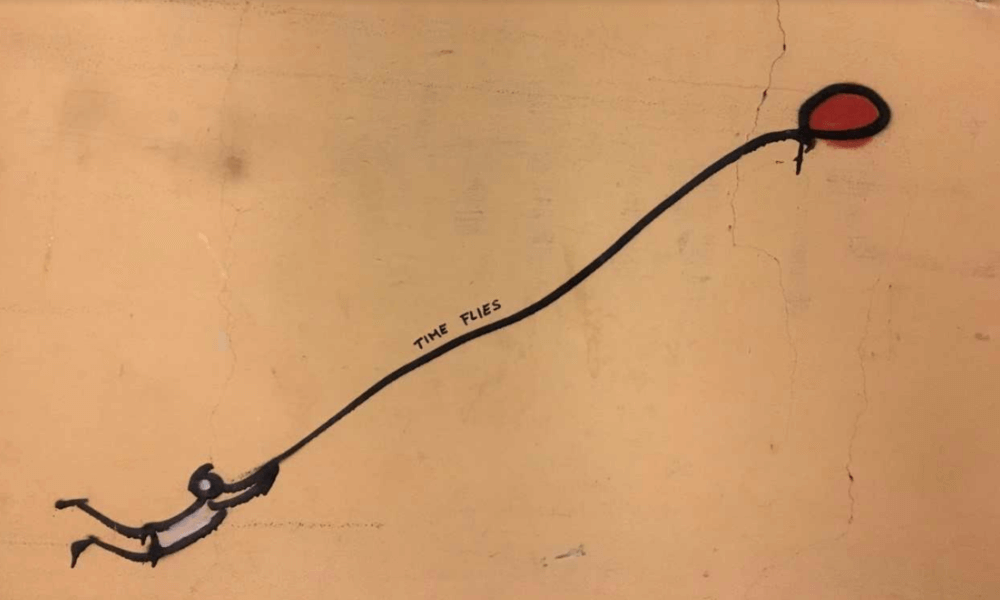Message from the Executive Director
M.A. in Political Science, European Union Policy Studies
Dear EUPS Alumni and Friends,
I write this message from Washington, DC after a busy week of program-related activities. After a series of meetings and events in Harrisonburg, Caterina Paolucci, Michele Capecchi (a Florentine lawyer who delivers occasional lectures to our students and hosts EUPS interns in his firm), and I have been spreading the word about the program in DC—establishing new ties, deepening existing relationships, and strengthening transatlantic bridges.
Among the most enjoyable events of the week were an EUPS alumni advisory board meeting and an evening networking event for alumni and friends in downtown DC. Thank you to all alumni and friends who turned out to the networking event! It is a great joy to watch the EUPS community grow, to hear about the lives of alums, and to see members of the network interacting with each other. For more on the “value of the network,” see the piece by Sara Kinas (B.A. 2014, M.A. 2015) in this issue.
While in DC, Caterina, Michele, and I have also witnessed 150+ undergraduate students (from over a dozen colleges and universities) participating in the annual Mid-Atlantic EU Simulation in DC. JMU students have been taking part in this simulation for years, and numerous “simulation alums” have gone on to thrive in the EUPS program.
But this year’s simulation has had two particularly direct EUPS tie-ins. First, JMU has finally been able to play Italy! Students visited the Italian embassy in Washington just before the simulation began. They received a helpful briefing, and we were able to discuss the work that we do in Florence with the Italian diplomatic staff. Second, the Kosovar faculty member—Remzie Istrefi—who brought University of Pristina students to Florence for last spring’s Engaging Southeastern Europe conference, has followed that effort by bringing another group of students to Washington for this simulation. The DC simulation has seen a lot in its more than 25 years of history, but this is the first time that a European institution has participated.
On the other side of the Atlantic, of course, students have returned from busy and diverse fall breaks and are working on various papers, exams, and projects as the end of the semester approaches. The political environment that they are analyzing is, as always, dynamic and challenging. Italy’s populist government—which George Vergara (M.A. 2019) discusses in this issue of the newsletter—has constructed a budget that violates eurozone rules. It is not clear, especially in a context where Angela Merkel has relinquished her party leadership role, and where parties are gearing up for the May 2019 European Parliament elections, how this latest euro-area drama will unfold. Centrist political parties, meanwhile, are concerned about a possible “populist wave” in the EP elections and are busy designing blueprints for Europe’s next five years. Dr. Helen Callaghan, in this issue, discusses how centrist parties have, over the past thirty years, embraced a market-based approach to governance that has had unintended—and sometimes tragic—effects. At the same time, critical developments on the EU’s southeastern frontier will likely wrap up before the EP elections hit in the spring. Will the Former Yugoslav Republic of Macedonia (FYROM) become “North Macedonia”? If the (north) Macedonians muster the constitutional supermajority necessary to effectuate the name change, will the Greek parliament deliver on the Greek government’s promise to endorse it?
Of course, students are grappling with these and other pressing issues in the inspiring Florentine context. In this issue, Katherine Hayes (M.A. 2019) reports one source of such inspiration—the serene medieval church and grounds of San Miniato al Monte, which is perched high above the (already towering!) Piazzale Michelangelo.
I’ll conclude this message with two quick requests to alums.
First, please be ready to complete the latest iteration of the alumni survey, which I will circulate within the coming weeks. I know that we are all bombarded with survey requests, but this one will not take long, and the more participation we have, the better we will be able to attract top students, convince potential partners of our program’s value, and identify priority areas for attention both while students are enrolled in the program and after they have graduated.
Second, please think about ways that you, personally, can support the program and its students. There will be a question or two on the survey asking whether you might volunteer to support students and broader initiatives. If you would like to make a donation to support students—to send them to conferences, to bring in high-quality speakers, to promote internships and study outside of Florence, etc.—you can always do so by finding the “EU Policy Studies” fund at https://www.jmu.edu/give/sort-full.shtml.
Tanti saluti, e forza JMU!

John A. Scherpereel
Executive Director, M.A. Program in Political Science, EUPS concentration
